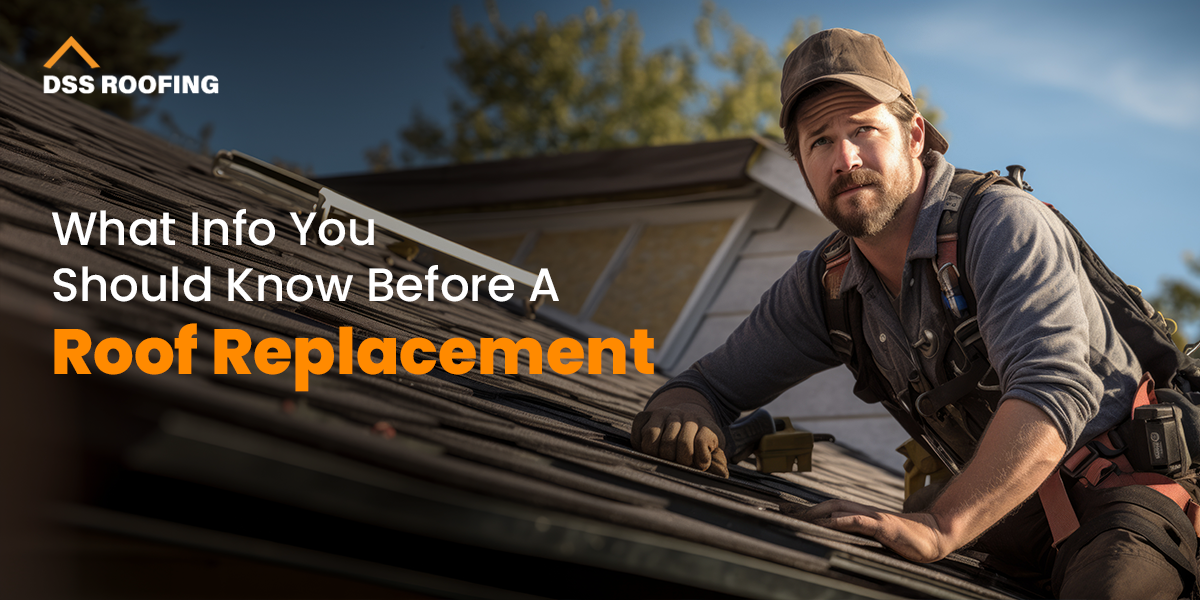What Info You Should Know Before A Roof Replacement
Replacing a roof is a huge investment that requires a careful decision. No doubt, roof replacement enhances the value, safety, and appearance of your home. However, homeowners should think twice and gather all information before heading to the residential roof replacement in New York.
From understanding the process to choosing the right materials, there are several key factors to consider. So, through this blog, let’s delve into everything about roof replacement.
Understanding the Importance of Roof Replacement:
A roof replacement is more than just a facelift for your home. It’s an essential part of maintaining the structural integrity and protection of your property. A new roof can prevent leaks, enhance energy efficiency, and even increase your home’s market value. In the long term, you may save time, money, and worry by being aware of when to replace your roof and what to expect during the process.
Signs That You Need a Roof Replacement:
It might be difficult to choose when to replace your roof. Here are some common signs that indicate it’s time for a new roof:
- Age: The average roof lasts twenty to twenty-five years. This is when you should start thinking about getting a new roof if yours is getting old.
- Leaks and Water Damage: Persistent leaks or visible water damage inside your home are clear indicators that your roof may need replacing.
- Shingle Issues: Your roof is degrading if there are shingles that are missing, curled, or buckling.
- Sagging Roof Deck: If you notice any sagging areas, it could indicate structural damage that requires immediate attention.
- Moss and Algae Growth: While not necessarily a sign of damage, excessive growth can be a symptom of underlying issues and can compromise your roof’s integrity over time.
Choosing the Right Roofing Material:
Selecting the right roofing material is crucial for the longevity and performance of your new roof. Here are some popular options:
- Asphalt Shingles: Affordable and easy to install, they come in a variety of colors and styles.
- Metal Roofing: Durable and energy-efficient, metal roofing can last up to 50 years with proper maintenance.
- Tile Roofing: Clay or concrete tiles are incredibly durable and offer a unique aesthetic, but they can be heavy and expensive.
- Wood Shingles and Shakes: Offer a natural look but require more maintenance and have a shorter lifespan.
- Slate Roofing: Highly durable and long-lasting, but also one of the most expensive options.
Budgeting for Your Roof Replacement:
A roof replacement can be costly, so it’s essential to budget properly. Consider the following expenses:
- Materials: The cost of materials can vary widely depending on the type you choose.
- Labor: Hiring a reputable roofing contractor will ensure quality workmanship, but it comes at a price.
- Permits and Fees: Check with your local municipality for any required permits and associated fees.
- Unexpected Costs: Always budget for unexpected issues that may arise, such as structural repairs.
Finding a Reputable Roofing Contractor:
Choosing the right contractor is critical to the success of your roof replacement. The following advice may help you locate a trustworthy roofer:
- Get Multiple Quotes: Compare quotes from at least three different contractors to get a sense of the average cost.
- Check References and Reviews: Look for contractors with positive reviews and ask for references from previous clients.
- Verify Licenses and Insurance: Ensure your contractor is licensed and carries adequate insurance to protect against accidents or damage.
- Review Contracts Carefully: Make sure all details, including costs, timelines, and warranties, are clearly outlined in the contract.
Roof Replacement Process:
Knowing what to expect during the residential roof replacements ny process can help alleviate stress and ensure everything goes smoothly. Here’s a general overview:
- Inspection and Estimate: The contractor will inspect your roof and provide an estimate.
- Scheduling: Once you agree to the estimate, schedule the replacement at a convenient time.
- Removal of Old Roof: The old roofing materials will be removed, and any underlying damage will be repaired.
- Installation of New Roof: The new roofing materials will be installed according to manufacturer guidelines.
- Cleanup and Inspection: The contractor will clean up any debris and perform a final inspection to ensure everything is in order.
Preparing Your Home for Roof Replacement:
Preparing your home before the roofing crew arrives can help the process go more smoothly. Here are some steps to take:
- Clear the Area: Remove any items from your yard, such as patio furniture, grills, and potted plants.
- Protect Valuables: Cover or move any valuable items inside your home to protect them from dust and debris.
- Notify Neighbors: Inform your neighbors about the upcoming work so they can make any necessary arrangements.
- Plan for Noise: Roof replacement can be noisy, so plan accordingly if you or your pets are sensitive to loud sounds.
What to Expect During the Roof Replacement:
Understanding what will happen during the roof replacement can help set realistic expectations. Here’s what typically occurs:
- Noise: Roof replacement is noisy, with hammering, drilling, and other construction sounds.
- Debris: Old roofing materials and debris will be removed, which can create a mess around your home.
- Safety Precautions: The roofing crew will take measures to ensure their safety and protect your property.
Dealing with Unexpected Issues:
Sometimes, unexpected issues arise during a roof replacement. Here’s how to handle them:
- Stay Calm: It’s essential to stay calm and communicate openly with your contractor.
- Address Problems Quickly: Any issues, such as discovering water damage or structural problems, should be addressed immediately.
- Adjust Budget: Be prepared to adjust your budget to cover any unforeseen expenses.
Maintenance Tips for Your New Roof:
After the installation of the roof, proper maintenance is crucial to extend its lifespan. Here are some tips:
- Regular Inspections: Roof inspections should be done after significant storms and at least twice a year.
- Clean Gutters: Keep your gutters clean to prevent water damage.
- Remove Debris: Clear any debris, such as leaves or branches, from your roof regularly.
- Address Repairs Promptly: To avoid significant difficulties, resolve any minor concerns as soon as possible.
Final Thoughts:
A roof replacement is a significant project that requires careful planning and consideration. By understanding the signs that indicate you need a new roof, choosing the right materials, budgeting appropriately, and finding a reputable contractor, you can ensure a successful roof replacement. Being prepared for the process and knowing how to maintain your new roof will help protect your investment and keep your home safe for years to come.
If you are looking for the best roofing services for residential roof replacement New York, DSS Roofing is one of the top service providers. Our team of skilled and knowledgeable roofers is committed to always offering our customers superior roofing services. To give your roof premium roofing service, choose DSS Roofing. Contact us now for more information.
Remember, a well-maintained roof is crucial for the overall health of your home, so take the time to do it right.



